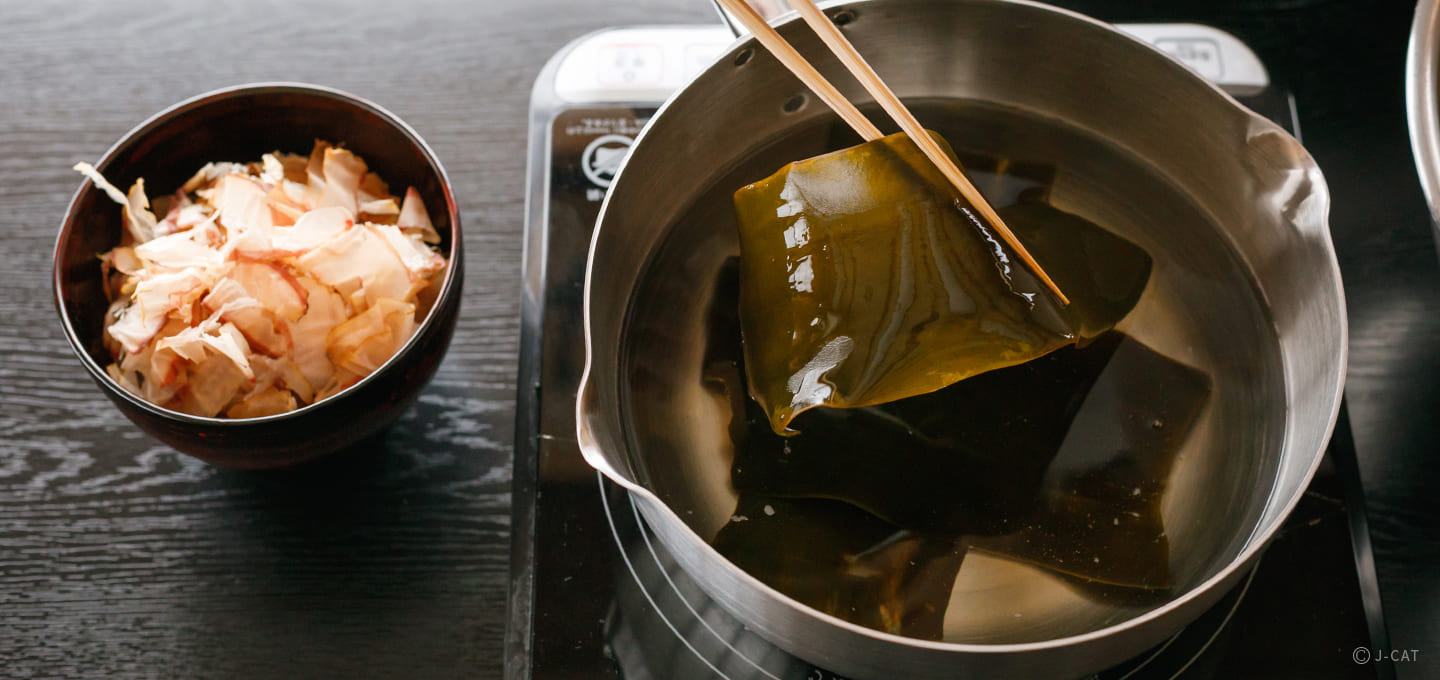
Special Experience
Kyoto
Matcha Kaiseki Dining & Primer on Dashi Soup Stock at a Ryotei Restaurant in Uji, Kyoto
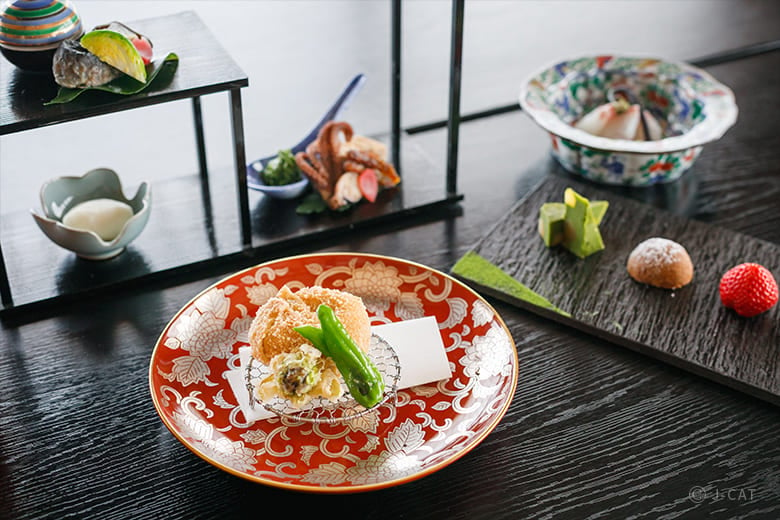
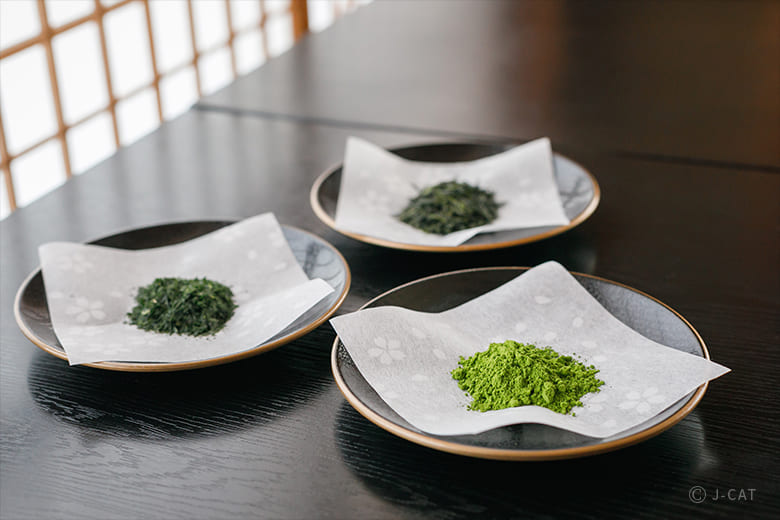
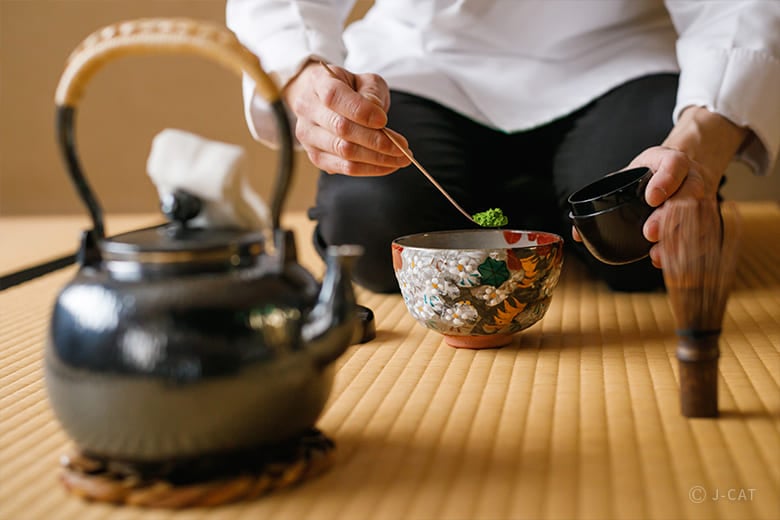
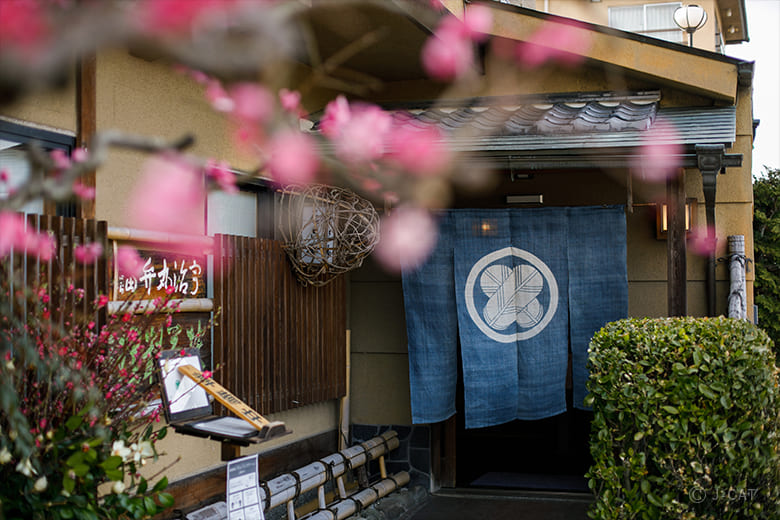
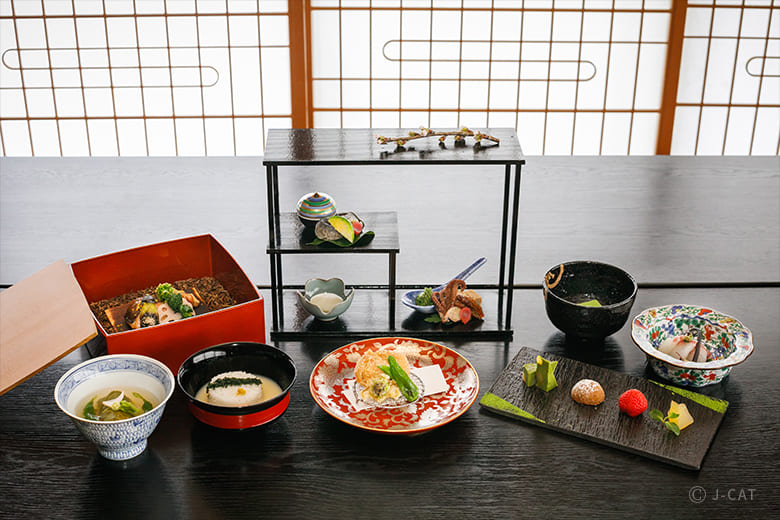
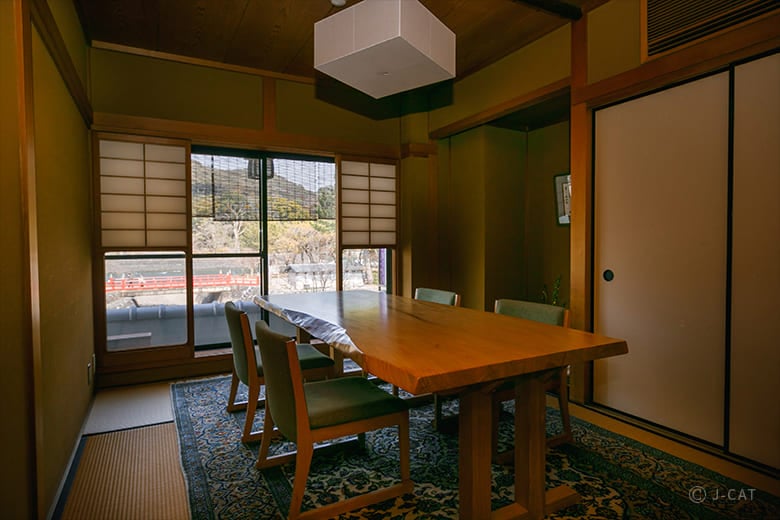
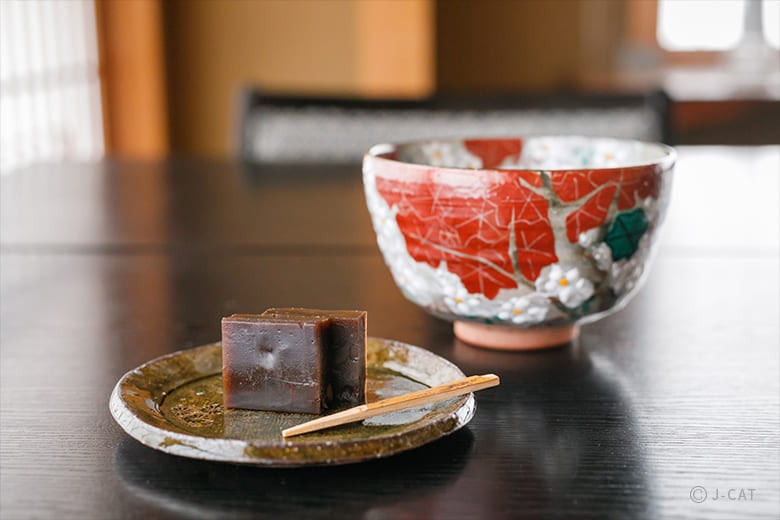
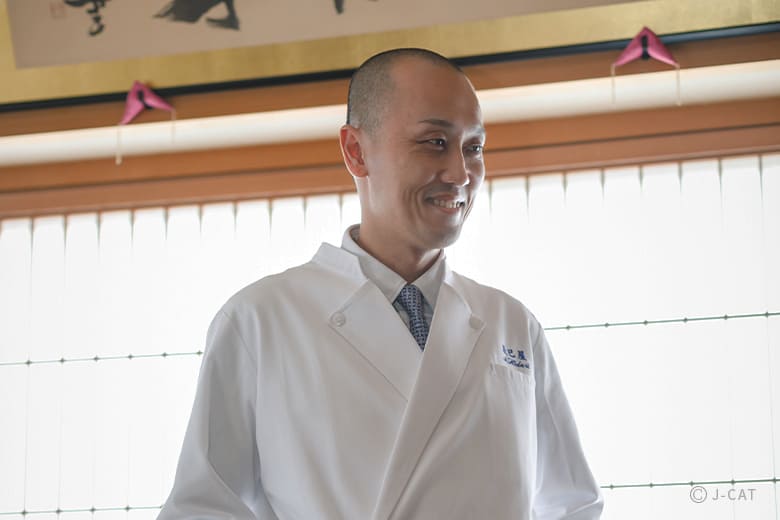
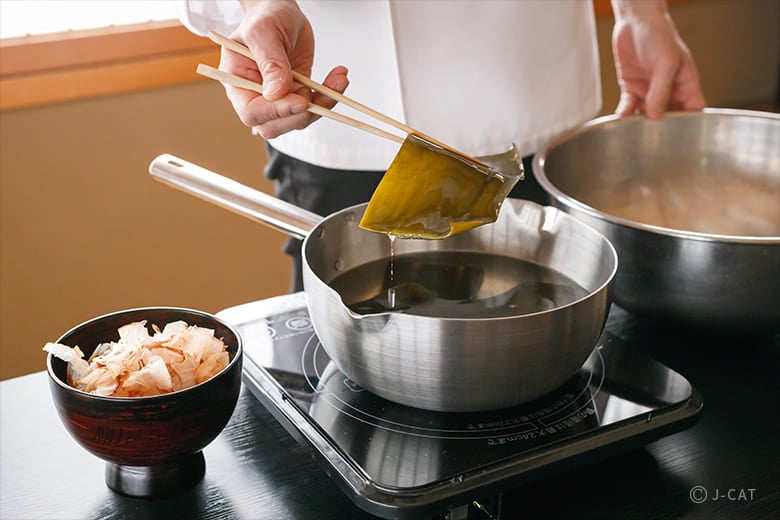
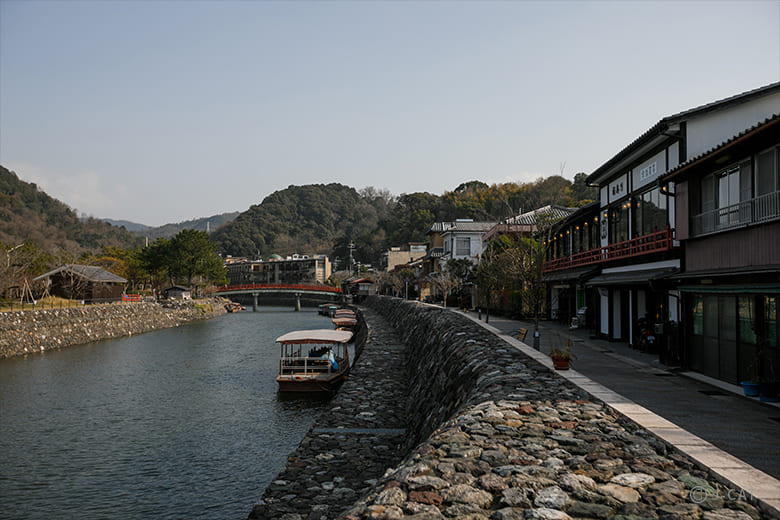
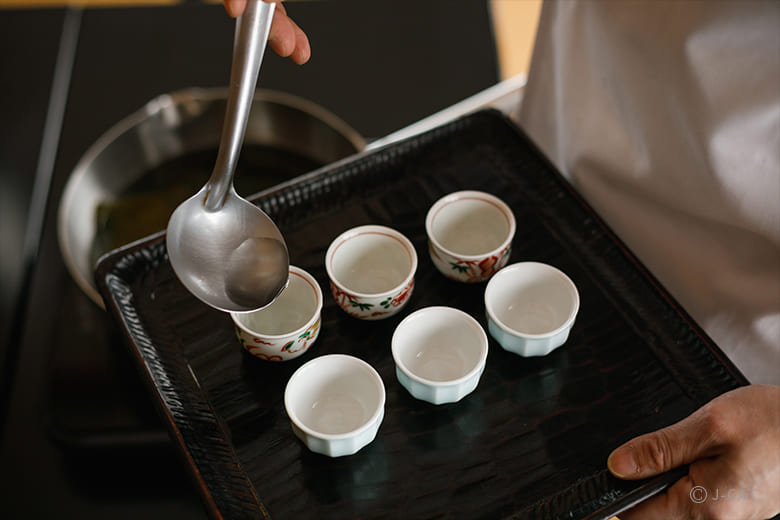
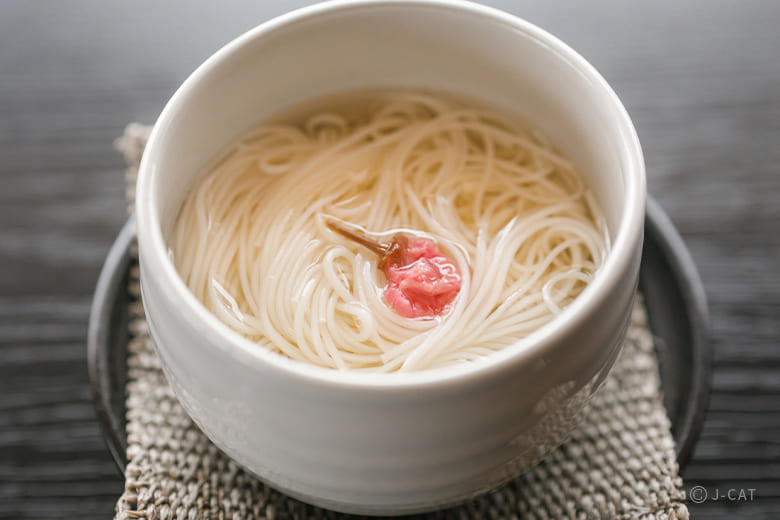
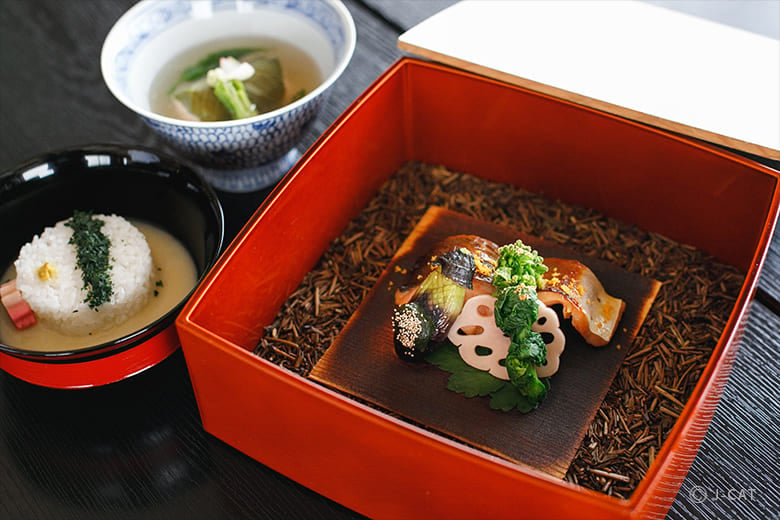
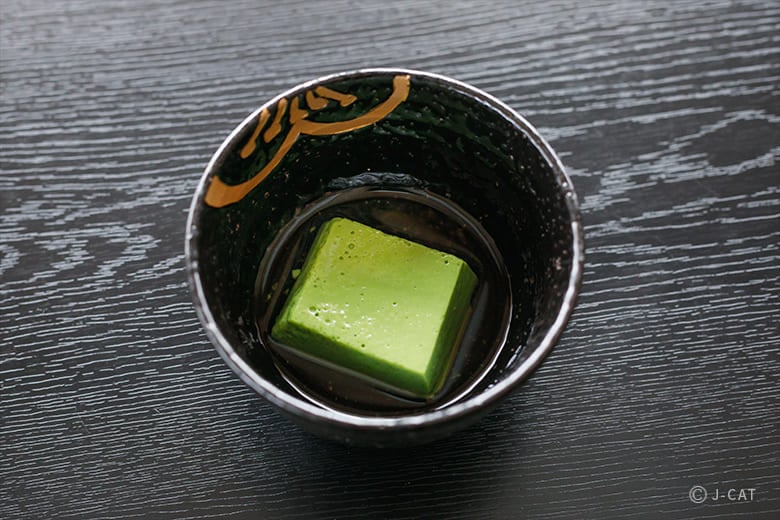
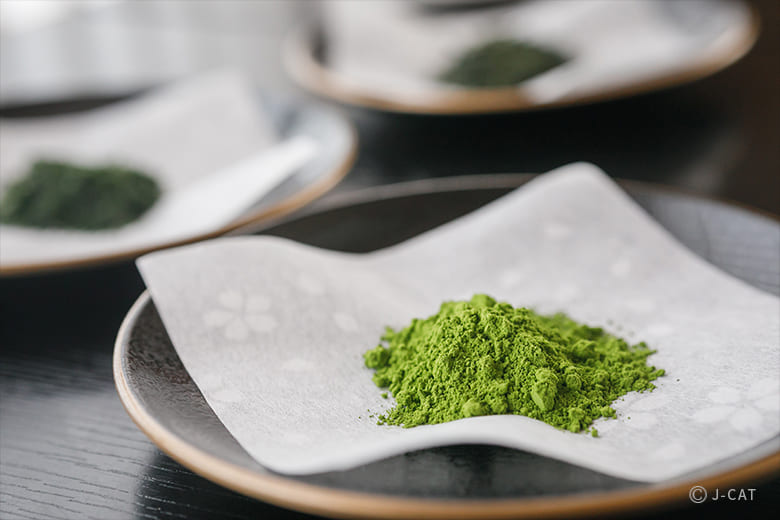
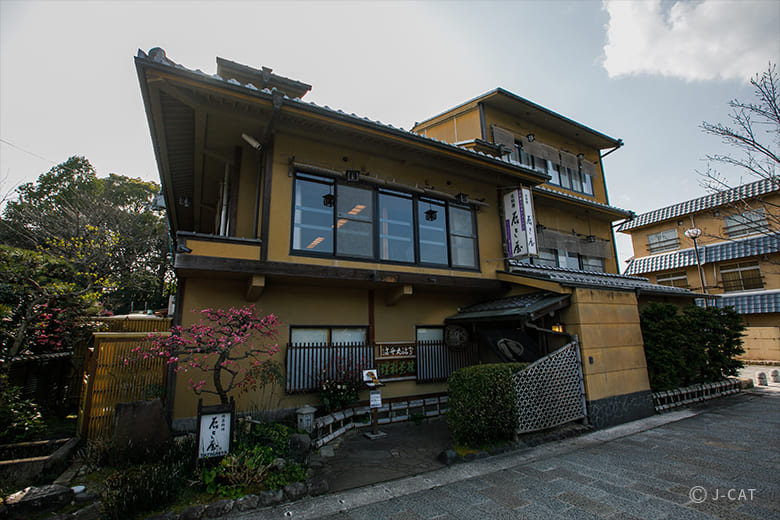
















Overview
At Tatsumiya, a historic and long-running restaurant near Byodoin Temple and overlooking the Uji River, enjoy a Kyo-kaiseki fine-dining course that revolves around the concept of "dining on matcha" and features dishes made with high-grade matcha green tea. Before the course begins, learn about dashi soup stock — the most crucial ingredient in Kyoto cuisine — from the restaurant's 8th-generation owner and chef Soichiro Hidari, and taste different varieties of dashi. Then, after indulging in your meal, gaze out at the Uji River as Mr. Hidari serves you fragrant Uji matcha and seasonal handmade sweets in the style of a tea ceremony. Best enjoyed for dinner, this experience is the perfect way to end a day of strolling around the scenic town of Uji.
Key Features
・Indulge in Kyo-kaiseki dishes made with matcha at a private room in a long-running high-end Kyoto restaurant
・Familiarize yourself with dashi, an essential ingredient in Kyoto cuisine, through an explanation by Tatsumiya's eighth-generation owner, Soichiro Hidari
・Savor a flavorful Wabunka-exclusive menu themed after the harmony of dashi and tea
・After your meal, enjoy matcha green tea and sweets prepared by Mr. Hidari as you chat with him
Kyoto
180mins
from ¥42,000 /person
1 - 10 participants
Available in English
Cancel free up to 11 days prior
Details
A Restaurant Specializing in Kyoto Cuisine Infused with Matcha
Home to Byodoin Temple, a World Heritage Site, the town of Uji in Kyoto is renowned for being one of Japan's leading tea-producing areas. Strolling down the path leading to the temple, which is lined with restaurants and shops offering tea leaves, matcha-flavored sweets, and other matcha-based drinks and dishes, you'll smell the rich and fragrant aroma of tea all around. Even visitors unfamiliar with Uji's reputation will immediately realize that they're in an area that specializes in tea.
Just as it was depicted over 1,000 years ago in The Tale of Genji, Uji is rich in scenic beauty no matter what the season: cherry blossoms, wisteria, autumn leaves, and snow-covered landscapes.

With the Uji River flowing through town, Uji offers beautiful seasonal scenery all year round
This culinary experience takes place at Tatsumiya, a reputable local establishment with a long history. Though it started out as a tea wholesaler in 1840, Tatsumiya became a restaurant in the early Taisho era (1912–1926), so its current incarnation as a high-end ryotei restaurant is now over 100 years old. A visit to this refined restaurant will take you back in time to the days when nobles would escape to their vacation homes in Uji for an idyllic getaway during the Heian period (784-1185).

Tatsumiya, a Kyo-ryori (Kyoto cuisine) restaurant on the banks of the Uji River
This experience will be held at a private Japanese-style room that overlooks the Uji River. Though the room's design is traditionally Japanese, it is furnished with tables and chairs, so those unaccustomed to sitting seiza-style need not worry. Alternatively, Tatsumiya can provide zabuton cushions, which are used for tatami rooms, so if this seating type is your preference, please let us know upon booking.
An Explanation on the Endless Possibilities of Dashi Soup Stock
This is an opportunity to not only enjoy top-quality Kyoto cuisine, but also gain some knowledge on Japanese cooking thanks to an explainer by Tatsumiya's owner and chef himself: Mr. Soichiro Hidari, the eighth-generation head. A consummate professional who took over the family business after training as a chef in Kobe and Kanazawa, Mr. Hidari is a highly experienced expert when it comes to Kyo-ryori (Kyoto cuisine). Take this time to hear directly from a chef who specializes in Kyo-kaiseki, Kyoto-style kaiseki cuisine. But rest assured that there's no need to be too formal; you can ask Mr. Hidari about home cooking as well.

Tatsumiya's eighth-generation owner, Soichiro Hidari, introduces guests to the appeal of tea and dashi soup stock
Due to Kyoto's reputation as Japan's cultural capital, many people have the impression that Kyo-kaiseki cuisine is only enjoyed on special occasions; however, Mr. Hidari wants to bring guests closer to Kyoto cuisine and, more broadly speaking, Japanese cuisine. This is why the theme of his explainer is dashi soup stock — not only is it an essential ingredient in Kyoto cuisine, but also, it's a common ingredient that can easily be incorporated in home cooking.
Mr. Hidari starts off the experience with a dashi-tasting session. First, try dashi that's only made of kelp; then, find out for yourself how the color, aroma, and umami flavor changes once bonito flakes are added to the broth. In what ways does dashi change when you combine ingredients? Hone your five senses as you sample and compare different types of dashi, and have fun exploring the seemingly endless possibilities of this versatile ingredient.

Learn how to make dashi with kelp and bonito flakes
Dashi made with kelp and bonito flakes has a deep flavor that's rich in umami. After learning how to make it, you can taste different types of dashi, as the soup stock’s flavor changes as ingredients are added to the mix.

Discover how the flavor of dashi changes each time new ingredients are added to the mix
A Wabunka-Exclusive Dish Themed After the Harmony of Dashi and Tea
After the explanation and tasting session, enhance your appreciation of dashi and get a full taste of its rich flavor as you savor a dashi-infused dish that Mr. Hidari came up with exclusively for Wabunka guests. Themed after the harmony between dashi and tea, the dish maximizes the potential of dashi, whose flavor changes depending on the ingredients added to the mix (Beverages billed separately. Please note that the food served varies depending on the season).

At Tatsumiya, learn how to incorporate tea into your cooking from an expert like Mr. Hidari
By combining dashi and tea, which complement each other and are both rich in umami, you can greatly enhance a dish's flavor.

A Wabunka-exclusive original dish that makes full use of the umami of dashi. For this article, Mr. Hidari prepared gyokuro nyumen (somen noodles in gyokuro green tea-infused broth)
A Multi-Course Meal Based on the Concept of "Dining on Matcha"
After enjoying the Wabunka-exclusive dish, it's time to indulge in Tatsumiya's matcha-based Kyo-kaiseki course. (Please note that the exact menu varies depending on the season.)
Though matcha sweets and drinks are now widely known around the world and are considered some of Japan's most appealing specialties, matcha-based savory dishes were created during the time of Mr. Hidari's father, Toshiyasu — the seventh-generation head of Tatsumiya. One can only imagine that such dishes were a novel idea at the time, but even to this day, it's relatively rare to find a Kyo-ryori restaurant like Tatsumiya that serves kaiseki courses with all dishes containing matcha and tea leaves.

Find out how matcha is incorporated into each dish as you taste it — some dishes may have a subtler matcha flavor than others
As an ingredient with a distinct taste of its own, matcha does not go well with each and every dish. And so, drawing from its vast wealth of knowledge and experience passed down multiple generations, Tatsumiya focuses on the compatibility of matcha with plant-based proteins such as yuba (tofu skin) and soy milk. Today, the restaurant's long history of dealing in tea is reflected in the high quality and delightful taste of its matcha-based cuisine.

Tatsumiya takes pride in its signature matcha tofu, a specialty passed down from the previous generation
Because he's a firm believer that there's no compromising on any of the ingredients when it comes to seasonality, freshness, or compatibility with other ingredients, Mr. Hidari is fully involved in selecting and purchasing ingredients, as well as coming up with menus. The matcha used in Tatsumiya's dishes is from Uji — locally produced, for local consumption. Uji is known for high-grade green tea, and its matcha is no exception. The umami and astringency of matcha vary depending on factors such as the tea plantation's methods, the time of harvest, and more. Thus, though the differences can at times be subtle, each type of tea has an abundance of distinct characteristics of its own.
With these things in mind, Tatsumiya uses different types of matcha to complement the ingredients, which ensures that diners don't grow weary of the taste of matcha. But that isn't all — each dish in Tatsumiya's matcha Kyo-kaiseki courses utilizes a different method of preparing matcha.As matcha is infused into a dish, it adds a subtle aroma, accentuates the color, and deeply enhances the flavor. Please enjoy discovering the differences with your senses.

Drawing from years of experience and intuition, Tatsumiya uses different types of matcha to complement different ingredients
Matcha and Seasonal Sweets Personally Prepared for You
Wrapping up the kaiseki course is a serving of matcha and sweets, prepared and served by Mr. Hidari himself, right in front of you. Though Mr. Hidari will prepare these in the tea ceremony style, there's no need to be intimidated. Formal tea ceremonies are often quiet affairs, but since this experience is held in a private space, just relax and enjoy the tea and sweets; don't worry about formalities.

Enjoy matcha prepared by Mr. Hidari himself
Part of the appeal of tea with Mr. Hidari is the opportunity to admire a variety of tea bowls, as each person in your group will receive a tea bowl with a different design. Mr. Hidari is a ceramics enthusiast, after all — feel free to talk to him about ceramics and tableware. This is a valuable opportunity to ask more in-depth questions and gain even more knowledge about the food you just savored, so ask away.

You'll want to hold this tea bowl — hand-picked by Mr. Hidari — with both hands as you admire it
Passionate and proactive when it comes to revitalizing Uji, Mr. Hidari has a wealth of local recommendations. If you'd like to know more about the charms of Uji, don’t hesitate to approach him for information on the best shops in town, seasonal attractions, and so on.
At Tatsumiya, enjoy a moment of tranquility as you appreciate the best that Uji has to offer. Experience its rich food culture with all your senses while gazing out at the Uji River — a great way to end a day of exploring this culturally rich, scenic town.
Tatsumiya

Tatsumiya
Established as a tea wholesaler in 1840, Tatsumiya, which is based in the tea-producing town of Uji in Kyoto, began operating as a restaurant in 1913. Specializing in dishes made with Uji's signature high-grade matcha green tea, Tatsumiya creatively maximizes the culinary potential of matcha, both as a drink and as a food ingredient. While placing the utmost importance on preserving Kyoto's culinary traditions, this high-end ryotei restaurant is brimming with warm hospitality, as the eighth-generation owner and chef Soichiro Hidari takes time to personally interact with guests.
Location
Tatsumiya
Uji City, Kyoto
Request for booking
Select first preferred date (JST)
February 2026
Sun
Mon
Tue
Wed
Thu
Fri
Sat
Instant Booking
Request Booking

17
Full

17
Unavailable
- Instant Booking: Your reservation is confirmed immediately upon payment.
- Request Booking: You will receive confirmation after the host reviews your request.
Kyoto
180mins
from ¥42,000 /person
1 - 10 participants
Available in English
Cancel free up to 11 days prior
Things to know
Contact Us
If you have any questions, please contact us using the form below.
We also accept bookings from corporate clients and travel agencies.